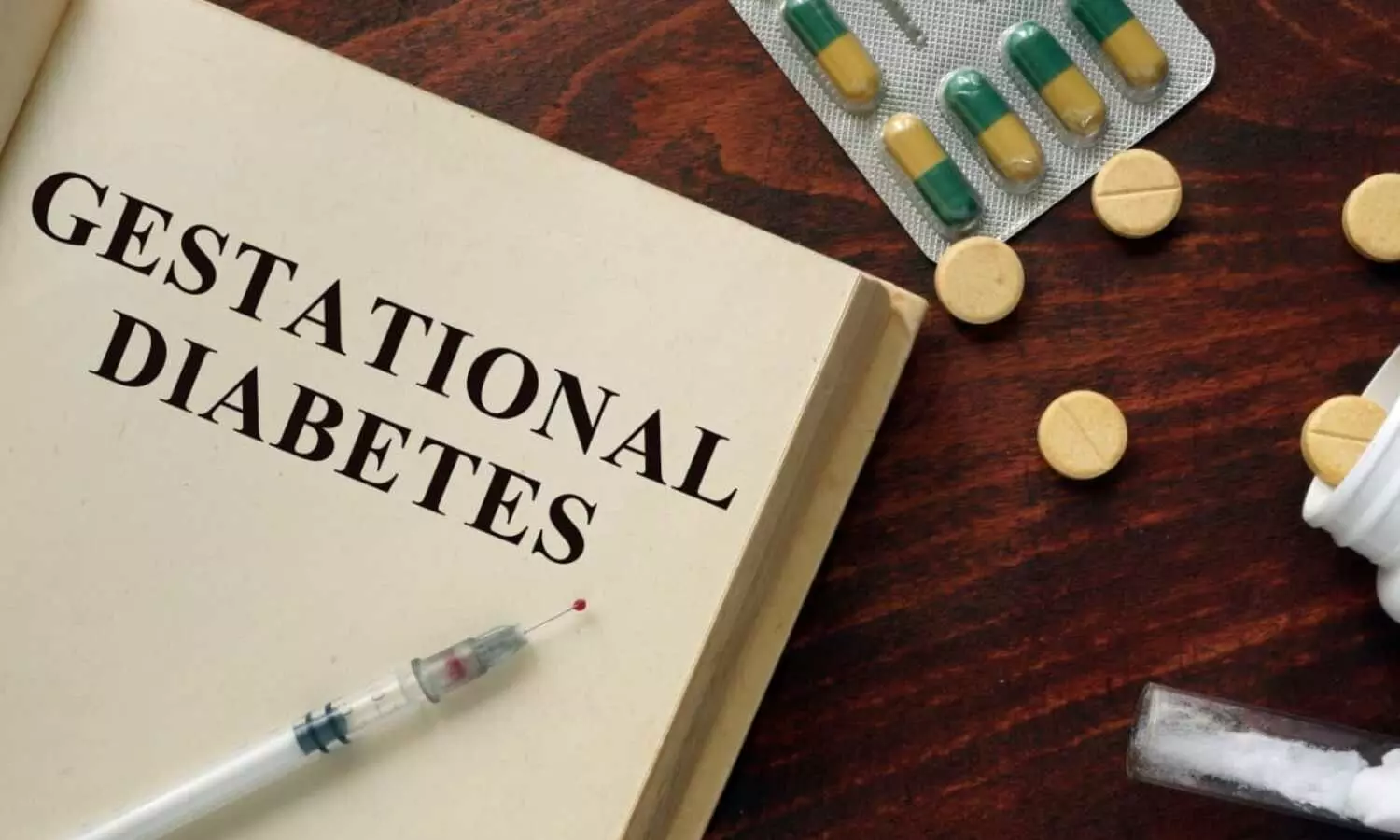Maternal haemodynamics may not predict pharmacological treatment requirement in gestational diabetes: Study

Gestational diabetes mellitus (GDM) is frequently observed as a common medical condition during pregnancy. Recent observational study examined the relationship between maternal haemodynamics and the need for pharmacological treatment in women with gestational diabetes (GDM). The researchers compared maternal haemodynamics, including heart rate and pulse wave velocity, between women with GDM who remained on dietary treatment and those who required pharmacological management such as metformin and/or insulin.
The study included 120 women with GDM. Maternal booking BMI was identified as having a causative influence on treatment requirement, with each unit increase in BMI increasing the odds of needing pharmacological therapy by 12%. The raw values of maternal heart rate and pulse wave velocity were both significantly higher in the group requiring pharmacological management compared to the dietary-only group, but these relationships did not remain significant in the causal logistic regression analysis.
Causal Relationships and Maternal Haemodynamic Measurements
No significant causal relationships were found between other maternal haemodynamic measurements, such as cardiac output, total peripheral resistance, and augmentation indices, and the need for pharmacological treatment of GDM. This is the first study to demonstrate a causative, rather than simply associational, relationship between maternal BMI and the requirement for pharmacological management of GDM.
Implications for Maternal Weight Control and Future Research
The findings highlight the importance of pre- and peri-conception weight control in preventing the need for pharmacological treatment of GDM. However, the results do not support a role for measurement of maternal hemodynamics in predicting which women with GDM are likely to require pharmacological management. Further research is needed to fully elucidate the complex relationships between maternal characteristics, cardiovascular adaptations, and treatment requirements in GDM.
Key Points
Here are the 6 key points from the research paper:
1. The study examined the relationship between maternal haemodynamics (heart rate and pulse wave velocity) and the need for pharmacological treatment in women with gestational diabetes (GDM).
2. The study found that maternal booking BMI had a causative influence on the treatment requirement, with each unit increase in BMI increasing the odds of needing pharmacological therapy (such as metformin and/or insulin) by 12%.
3. While the raw values of maternal heart rate and pulse wave velocity were significantly higher in the group requiring pharmacological management compared to the dietary-only group, these relationships did not remain significant in the causal logistic regression analysis.
4. No significant causal relationships were found between other maternal haemodynamic measurements, such as cardiac output, total peripheral resistance, and augmentation indices, and the need for pharmacological treatment of GDM.
5. This is the first study to demonstrate a causative, rather than simply associational, relationship between maternal BMI and the requirement for pharmacological management of GDM.
6. The findings highlight the importance of pre- and peri-conception weight control in preventing the need for pharmacological treatment of GDM, but the results do not support a role for measurement of maternal hemodynamics in predicting which women with GDM are likely to require pharmacological management.
Reference –
Abigail R. Anness, Michael Foster, Mohammed W. Osman, David Webb,Thompson Robinson, Asma Khalil, Neil Walkinshaw & Hatem A. Mousa (2024) Do maternal haemodynamics have a causal influence on treatment for gestational diabetes?, Journal ofObstetrics and Gynaecology, 44:1, 2307883, DOI: 10.1080/01443615.2024.2307883
from Medical News, Health News Latest, Medical News Today - Medical Dialogues | https://ift.tt/7lKIhkS
Comments
Post a Comment